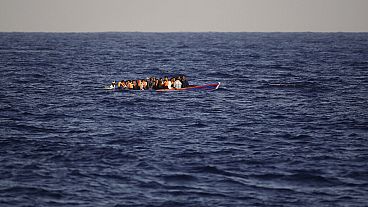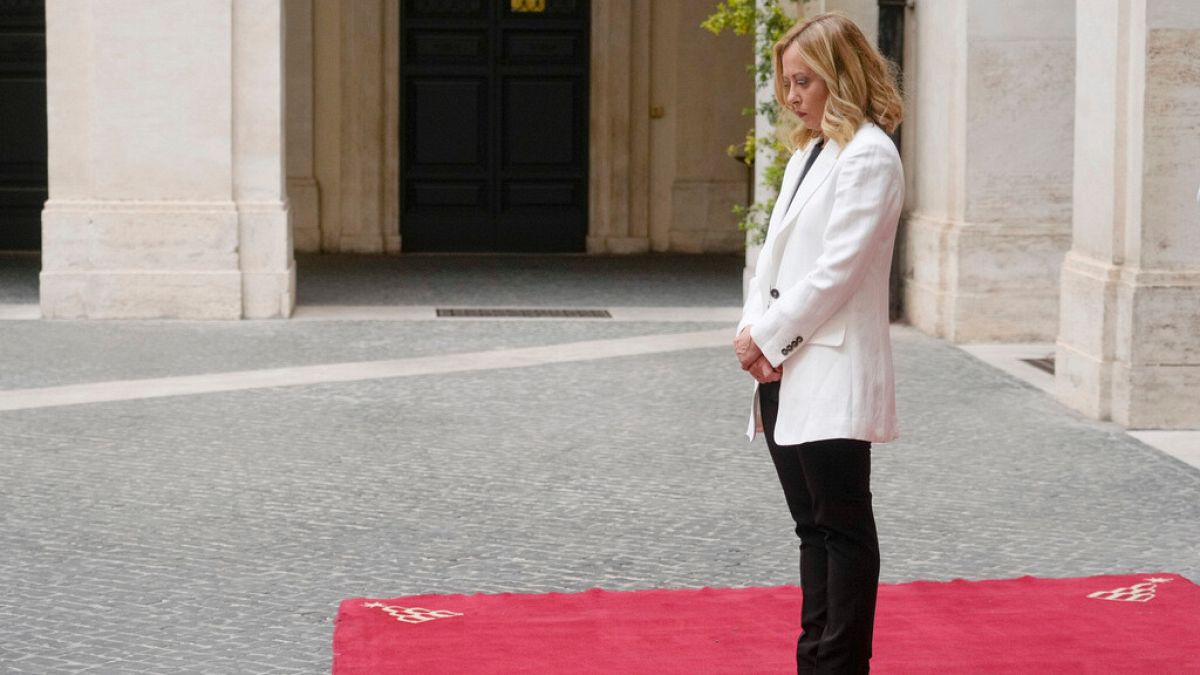The Commission identified concerns about "undue political influence" over Italy's public broadcaster, pointing to issues about how its leadership is appointed.
Italy's ruling party rejected the European Commission's criticism in its annual Rule of Law report, which urged it to do more to ensure the proper funding of its public media and protect journalists.
Giangiacomo Calovini, MP for far-right Brothers of Italy, said the report's focus on the current government was unfair.
"When it comes to the negative aspects like the issue of the media with RAI or the reform to directly elect the PM — I’d like to say that the RAI issue has been there for quite some time and it cannot be linked only to Meloni’s government," he said.
The report, released on Wednesday, noted that the Italian media has been subjected to political pressure over its coverage.
"The effectiveness of the governance system in securing RAI's full independence represents a long-standing source of concern in Italy," the report reads.
"Stakeholders also reported that following the appointment of the new RAI's CEO and other top-level figures, including news programme editors, there was an editorial shift which led to the resignation of several journalists and presenters."
The report also points to long-running concerns about the vulnerability of RAI to swings between different governments in Rome.
"Risks of political influence stem from the established practice of re-organising RAI's top-management positions based on the balance of political power emerging from electoral cycles," it explains.
In May, members of Italy's public broadcaster RAI went on strike after voicing complaints about editorial interference.
Meloni herself has filed several defamation cases against reporters who have been critical of her, including one where a journalist was ordered to pay damages for mocking the leader's height on social media.
When asked specifically about Italy, European Commission Vice President Vera Jourova said that the Commission had expressed the need for safeguards to protect media freedom in the country for years but that the situation is not improving.
“With new incidents reported by stakeholders and budget cuts, this is becoming very urgent,” she said.
RAI 'occupied', journalists claim
Alessandra Costante, secretary general of the Italian Journalists Union, expressed deep concerns about the state of press freedom in Italy.
"The perimeter of press freedom in Italy is slowly shrinking," she warned. "We have been raising this issue both with the International Federation of Journalists and the EU Commission. We have sent letters and requested specific missions to visit the country. We have tried in all possible ways to warn everyone that press freedom in Italy is fading away."
Costante was particularly critical of the current administration's influence over RAI.
"Never before has the public broadcasting service been ‘occupied’ in this way. RAI has become a TV network which is very political and this doesn’t do any good; it does not help the pluralism of information," she stated.
The report also focused on the justice system, warning that despite various reforms, attacks on the country's judiciary risked its authority and reputation in the eyes of the public.
Calovini reiterated that the Italian public had voted to support Meloni and her proposed reforms to Italy's constitution.
"I just want to remind everyone that almost two years ago Italians voted for Meloni, and not long ago they reconfirmed their choice, which is also about wanting the government to implement reforms,” he pointed out.












